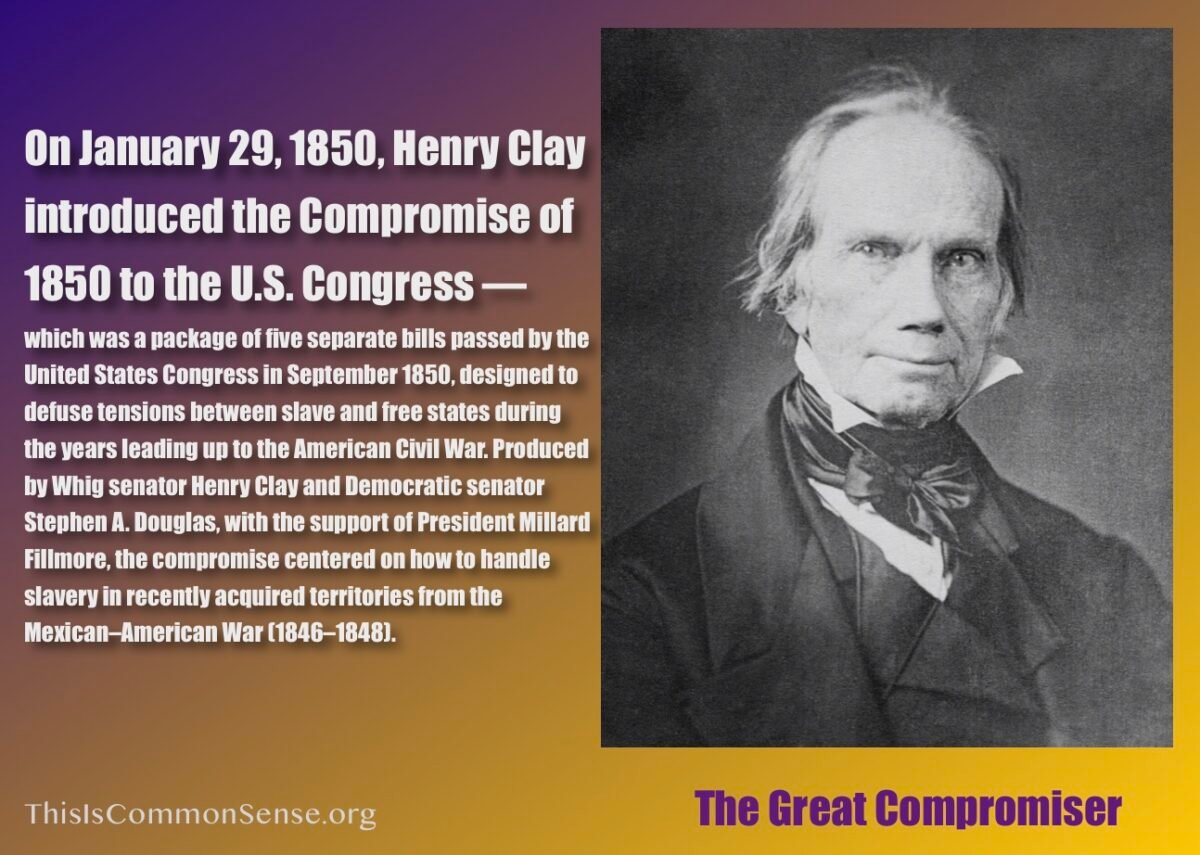On January 29, 1850, Henry Clay introduced the Compromise of 1850 to the U.S. Congress — which was a package of five separate bills passed by the United States Congress in September 1850, designed to defuse tensions between slave and free states during the years leading up to the American Civil War. Produced by Whig senator Henry Clay and Democratic senator Stephen A. Douglas, with the support of President Millard Fillmore, the compromise centered on how to handle slavery in recently acquired territories from the Mexican – American War (1846 – 1848).
The compromise included a provision approving California’s request to enter the Union as a free state; it also strengthened fugitive slave laws with the Fugitive Slave Act of 1850. In addition, the compromise
- banned the slave trade in Washington, D.C. (while still allowing slavery itself to exist),
- defined northern and western borders for Texas
- while establishing a territorial government for the Territory of New Mexico, with no restrictions on whether any future state from this territory would be a free or slave state and established a territorial government for the Territory of Utah also with no restrictions on whether the territory would become a slave or free state.









